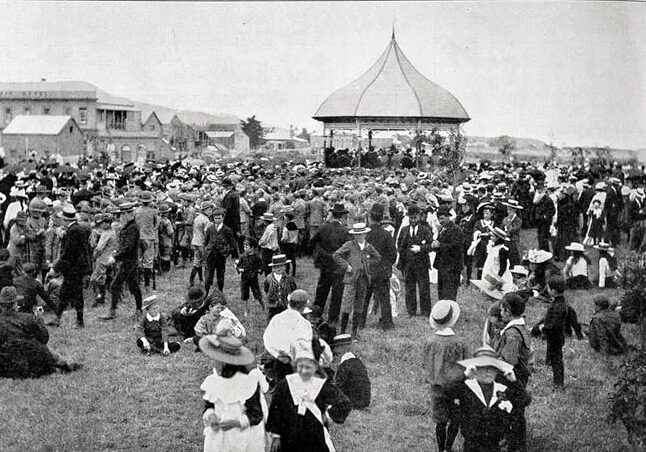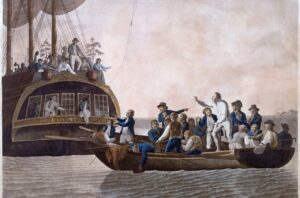As part of a Valley Profile series, MEGHAN HAWKES searches through old newspapers to bring you the stories Thames Valley locals once read about themselves.
1902
The opening of Victoria Reserve at Grahamstown, Thames, with its new band rotunda took place in the presence of a large number of residents and military volunteers. The handsome rotunda had been built to commemorate the King’s Coronation.

Mayor Trembath addressed the gathering and formally declared the reserve open. He said although the area was not very large, he hoped it was only a forerunner of what the public might look forward to in years to come. He trusted the local authorities would eventually fill in the whole of the foreshore from Grahamstown to Shortland. He thanked the donors of several seats which were placed about the reserve.
The band then played ‘God Save the King’ after which the Hon Mr McGowan spoke. He said it was imperative to provide these ‘breathing spaces’ for the community as well as places where children could run about free from danger. The Hauraki band then played a selection, after which the volunteers formed a line and fired a feu-de-joie – each man firing in succession along the ranks to make a continuous sound – in honour of the King.
TAPU CONCERNS ADDRESSED
At Tapu a public meeting was called to consider the encroachment of the tide on the Tapu Flat, the state of the cemetery, and the protection of trees.
A large crowd assembled in the schoolroom. The chairman had spoken to the Council regarding the encroachment of the foreshore, who had promised assistance in labour or funds. The Council, he said, was in readiness to assist in remedying the evil. Captain Newby regretfully pointed out the apathy of residents in regard to the proper care of the cemetery – what was everybody’s business, seemed nobody’s. In old times elected trustees controlled the affairs of the cemetery, but this seemed to have died out.
He hoped the previous order of things would be resumed as he cemetery was a disgrace to one and all. The matter of the protection of the shelter trees was relegated to the school committee for consideration.
CHILDREN CHARGED
Three Karangahake children, aged five, six, and seven years, were charged at the Paeroa Police Court with the theft of 18 shillings from a house, and were fined one pound and costs each. The charges were criticised by an observer who condemned “the fatheaded policeman who arrested these tiny toddlers and hauled them to Court, and the brace of Justices who gravely and solemnly fined them for the dreadful Crime of housebreaking”. The sentence, he spluttered, was quite illegal, for a child of five years could not be held responsible for a criminal act. It was a peculiarity of British jurisprudence that the Paeroa justices seemed not to have heard of. Waihī, as well, came under fire when “a little dot of five years” was placed in the dock on a charge of arson having been arrested by a “particularly green variety of police constable which seemed to be grown” in the Thames Valley. In this instance a lawyer was able to convince the Bench that a charge could not be made against a child of such tender years, and so it was dismissed.




